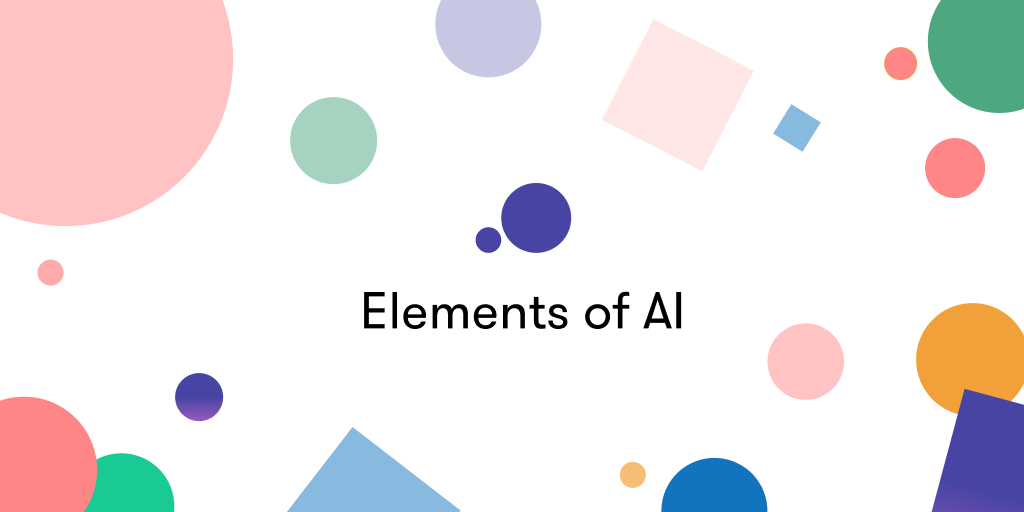Elements of AI course continues to increase artificial intelligence skills among Europeans

Elements of AI, launched during Finland’s Presidency of the Council of the EU, is the first educational course launched across Europe and an important investment in artificial intelligence (AI) skills throughout the continent. The course is available in all official EU languages. It was started with funding from the Ministry of Economic Affairs and Employment and will continue to increase Europeans’ competence in AI in cooperation with the University of Helsinki and Reaktor.
As part of its Presidency in 2019, Finland donated the Elements of AI course to all Europeans. The European Commission translated the course into the Union’s official languages and it was made available in the EU Member States in cooperation with local partners. According to a preliminary plan, the course would have been free for Europeans to attend in 2020−2021. However, Reaktor and the University of Helsinki have decided to continue offering the course to Europeans also after 2021.
The objective of the course was to train one per cent of EU citizens in the basics of artificial intelligence, and thereby strengthen digital competence in the whole of EU. The coronavirus pandemic delayed the launch of the course in many countries. At the same time, the pandemic has highlighted the importance of digital skills in people’s daily lives as well as in different sectors.
“Digitalisation and rapid changes in working life require continuous learning from all of us. Elements of AI is an excellent example of different options for continuous learning. I am proud that Finland donated the course as part of its Presidency to the whole of Europe,” says Minister of Employment Tuula Haatainen.
“Artificial intelligence is one of the key technologies that enable sustainable growth and competitiveness in the EU. It is important that Finland and Europe continue to lead digital and technological development, and the Elements of AI course in part contributes to achieving this goal. The work on this topic will continue at the Ministry of Economic Affairs and Employment, for example in the Artificial Intelligence 4.0 programme, which aims to strengthen the digitalisation of Finnish SMEs,” says Minister of Economic Affairs Mika Lintilä.
Course strengthens Finland’s image as a pioneer in education, gender equality and technology
The number of participants in the course has varied from country to country. In Finland, more than two per cent of the population have already attended the course. Croatia comes second, with almost one per cent of the population having completed the course so far. The course has received very positive feedback from all over Europe and it has been described as instructive and accessible.
Across Europe, men and women have been equally interested in the course. As regards age distribution, the most participants in the course have been young adults. However, older people are also interested in artificial intelligence, with nearly 12 per cent of the attendees aged over 65.
“The majority of users attend the course to improve skills needed in working life. We will enhance not only AI competence but also learning skills. What would be a more suitable objective for an educational innovation from Finland than supporting continuous learning all over the world?” says Professor Teemu Roos, who developed the course.
The course was launched in several countries in cooperation with Finnish embassies and local partners.
“The Elements of AI course has attracted positive attention across Europe. At the same time, it has strengthened Finland’s image as a leader in education, gender equality and technology,” says Mikko Koivumaa, Director General of Communications at the Ministry for Foreign Affairs.
Elements of AI to expand and develop further
The courses will continue under the direction of Reactor and the University of Helsinki. Local partners have been found in all participating countries, with the aim to expand the course to different educational institutions, for example.
“We are pleased to be involved in exporting Finnish expertise in this way too. When European universities and other actors join to solve educational challenges, we can ensure that both Finns and Europeans have the needed skills for the future,” says Sari Lindblom, Rector of the University of Helsinki.
“Launching this course is only the first step towards the one per cent target. We will continue to work closely with our broad network in Europe and encourage new sectors and organisations to join our AI challenge. I would like to thank the Finnish missions for their valuable work in promoting the country partner network and raising awareness of the course,” says Ville Valtonen from Reaktor Education.
Inquiries:
Mika Niemelä, Director, Ministry of Economic Affairs and Employment, tel. +358 29 506 2135
Leila Vilhunen, Adviser to the Minister of Economic Affairs (EU affairs), tel. +358 29 504 7120
Iiris Niinikoski, Special Adviser to the Minister of Employment, tel. +358 29 504 7372
Ville Cantell, Counsellor, Ministry for Foreign Affairs, tel. +358 29 535 1847
Ville Valtonen, Managing Director, Reaktor Education, tel. +358 50 323 7203
Sari Lindblom, Rector, University of Helsinki, tel. +358 29 412 2210 (secretary)
Teemu Roos, Professor, University of Helsinki, tel. +358 44 523 1238
